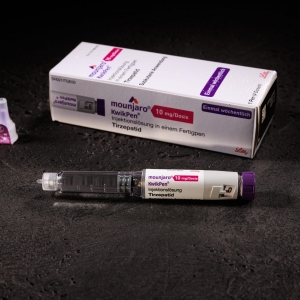Living with chronic pain can be a daily challenge that affects every aspect of your life — from your physical strength to your emotional well-being. Unlike short-term pain that fades with time, chronic pain lingers for months or even years, making ordinary tasks feel difficult. Fortunately, there are effective ways to manage it — both naturally and medically. Among these, Tapaday 200mg has proven to be one of the most reliable solutions for those seeking lasting relief from severe pain.
What’s Chronic Pain? Understanding the Meaning
The simple chronic pain meaning refers to pain that persists for more than 12 weeks, even after the initial injury or illness has healed. It’s not just about physical discomfort — it’s a condition that affects the body and mind simultaneously. Many people describe it as an invisible illness because the pain often exists without visible injury, yet the suffering is real and constant.
Chronic pain can affect your joints, muscles, or nerves and can range from dull, burning pain to sharp, shooting sensations. The persistence of pain often leads to fatigue, depression, irritability, and difficulty focusing — impacting the overall quality of life.
How Chronic Pain Affects Daily Life
People with chronic pain experience more than physical distress. It deeply affects their mental and emotional health, work, relationships, and lifestyle. Some common impacts include:
- Disrupted sleep patterns due to continuous pain.
- Reduced mobility and difficulty performing daily activities.
- Mood swings and anxiety caused by ongoing discomfort.
- Loss of productivity at work or home.
- Isolation or depression, as people struggle to explain invisible pain.
Over time, this ongoing pain can change how the brain processes discomfort, making the sensation even more intense — a condition known as pain sensitization.
Chronic Pain Causes
There isn’t one single cause of chronic pain; rather, it often develops as a result of multiple factors. Understanding the chronic pain causes can help in finding the right chronic pain treatment.
Common causes include:
- Injuries that don’t heal properly (e.g., back or neck injury).
- Arthritis or joint inflammation.
- Nerve damage (neuropathy).
- Post-surgical pain that persists for months.
- Chronic illnesses like fibromyalgia or diabetes.
- Poor posture or repetitive stress injuries.
- Psychological factors, including stress and anxiety, which can amplify pain.
Sometimes, doctors cannot identify a clear cause, which makes chronic pain syndrome challenging to treat.
Signs and Symptoms of Chronic Pain
The symptoms vary depending on the underlying cause, but some common ones include:
- Continuous or intermittent pain lasting over 3 months.
- Burning, throbbing, or shooting sensations.
- Muscle stiffness or tightness.
- Fatigue and sleep disturbances.
- Decreased appetite or motivation.
- Emotional distress, irritability, or depression.
Recognizing these early signs can help prevent long-term complications and improve pain management strategies.
Natural Ways to Treat Chronic Pain
While medical treatment is essential for severe cases, many people find relief through natural remedies that help reduce inflammation and improve mobility. Here are some natural ways to manage chronic pain:
1. Exercise and Movement
Gentle activities like yoga, stretching, swimming, or walking can strengthen muscles, improve flexibility, and release endorphins — the body’s natural painkillers.
2. Healthy Diet
Foods rich in omega-3 fatty acids (such as salmon, walnuts, and flaxseeds) help reduce inflammation. Avoid processed foods and refined sugar, which can worsen pain.
3. Heat and Cold Therapy
Applying a warm compress relaxes tense muscles, while an ice pack reduces swelling and numbs sharp pain.
4. Meditation and Mindfulness
Mind-body practices help reduce stress and shift focus away from pain. Deep breathing and meditation calm the nervous system and can lessen pain intensity.
5. Massage Therapy
Professional massages can ease muscle stiffness and improve blood circulation, offering temporary relief from chronic discomfort.
6. Acupuncture
This ancient Chinese therapy involves inserting thin needles into specific points to stimulate healing and reduce pain signals.
7. Proper Sleep and Hydration
Resting the body and maintaining hydration support healing and nerve function, which are crucial in managing chronic pain.
While these natural treatments offer great support, some cases of severe or persistent pain require stronger chronic pain medication like Tapaday 200 mg tablets.
Medical Treatment for Chronic Pain: Tapaday 200 Mg
When natural treatments and lifestyle changes don’t provide sufficient relief, medical therapy becomes necessary. Tapaday 200 mg tablets are a highly effective prescription option for managing chronic pain that stems from nerve damage, injury, or musculoskeletal issues.
What Is Tapentadol?
The active ingredient in Tapaday 200 Mg is Tapentadol — a centrally acting pain reliever. If you’re wondering what is tapentadol, it’s a medicine that works by changing the way your brain and nerves respond to pain signals. It has a dual mechanism:
- It activates mu-opioid receptors to relieve physical pain.
- It inhibits norepinephrine reuptake, which helps manage nerve pain.
This makes tapentadol tablets effective for both chronic pain and acute pain conditions.
Tapentadol Uses
The key tapentadol uses include:
- Managing chronic pain conditions such as arthritis, back pain, or nerve damage.
- Relieving post-surgical pain.
- Treating fibromyalgia or neuropathic pain.
- Providing comfort in long-term musculoskeletal disorders.
Whether you are struggling with persistent joint discomfort or nerve-related pain, Tapaday 200 provides significant relief when used under medical supervision.
Tapentadol Brand Name
There are several tapentadol brand names, with Tapaday, Aspadol, and Nucynta being among the most recognized. These brands offer varying dosages suited to different pain intensities.
Benefits of Tapaday 200 Mg Tablets
- Fast-acting pain relief within a short duration after intake.
- Dual-action formula for both physical and nerve pain.
- Long-lasting comfort allowing better sleep and daily functioning.
- Improved quality of life with reduced discomfort and increased mobility.
Unlike some traditional opioids, Tapaday 200 mg tablets have a lower risk of dependency when taken responsibly under a doctor’s supervision.
Tapaday 200 Mg Dosage
The dosage depends on the individual’s condition and pain severity. Typically:
- One tablet (200 mg) is taken every 12 hours.
- It can be taken with or without food.
- Do not crush or chew the tablet.
- Follow your doctor’s prescribed dose and duration strictly.
Never exceed the recommended dose or mix with alcohol, as it may enhance sedative effects.
Tapaday 200 Mg Side Effects
Although Tapaday 200 is safe when used as prescribed, some side effects can occur, including:
- Drowsiness or dizziness
- Nausea or vomiting
- Constipation
- Headache
- Dry mouth
- Light-headedness
If these symptoms persist or worsen, consult your healthcare provider immediately.
Precautions and Warnings
Before taking Tapaday 200 Mg:
- Avoid driving or operating heavy machinery after consumption.
- Inform your doctor of any liver, kidney, or heart conditions.
- Do not mix with alcohol or sedatives.
- Avoid use during pregnancy or breastfeeding unless prescribed.
- Inform your doctor if you are using other chronic pain medication or antidepressants.
Proper supervision ensures safe and effective use of Tapaday 200 mg tablets.
How Tapaday 200 Mg Improves Quality of Life
Chronic pain doesn’t just hurt physically — it takes a toll emotionally and mentally. With Tapaday 200 mg, patients often experience a significant improvement in sleep quality, energy levels, and mobility. Pain relief helps them regain confidence, social interaction, and the ability to enjoy life again.
That’s why Tapaday 200 is considered one of the most trusted solutions in the chronic pain medication list.
Alternative Approaches to Chronic Pain Therapy
Along with medication, several chronic pain therapy approaches can be integrated for long-term success:
- Cognitive Behavioural Therapy (CBT): Helps reframe negative thoughts about pain.
- Physical Therapy: Strengthens muscles and improves posture.
- Occupational Therapy: Assists in adapting to daily activities without discomfort.
- Relaxation Techniques: Breathing exercises and stretching to ease muscle tension.
These therapies work best when combined with the appropriate medication like Tapaday 200 mg tablets.
Frequently Asked Questions (FAQs)






